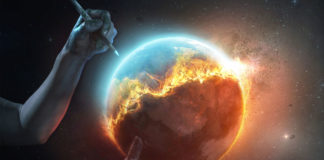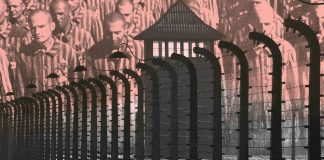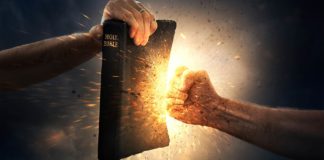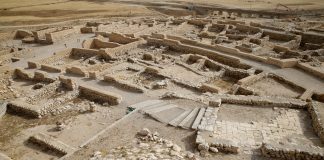The accuracy of biblical manuscripts
What guarantees do we have that the texts from which modern translations of the Bible were made reflect the original?
Jesus and the Goddess of Reason | Thomas Paine and the trap of contemporary deism
"I believe in one God, and no more; and I hope for happiness beyond this life." This is how one of the most famous leaders of the American Revolution and an influential political writer of the late 18th century-Thomas Paine (1737-1809)-begins his testimony of faith. A few lines later in the same book, The Age of Reason, after vehemently rejecting the creed of...
There is no hell
“You’re going to hell!” The words dripped with a violence, barely contained. “Repent of your wickedness,” a voice called again from the middle of a mob holding placards. I didn’t appreciate these words being directed at my wife and me.
Heaven won’t be boring. Here’s why.
Forget floating on clouds—discover the thrilling, purposeful eternity God has planned for you.
An unexpected return, the premise for missing the meeting with Christ
How important is the second coming of Jesus Christ in traditional Christianity?
The birth of Jesus and its impact on world history over the last two millennia
No leader has ever inspired mankind to a greater extent than the baby born in Bethlehem, the one who divided history. No other personality in the world has left such a mark on such a large number of fields as Jesus did. And the legacy He left in terms of human rights (especially women's rights), education, attitudes towards children, humility, and forgiveness is...
Forgiveness for the Nazi criminals
Most of our beliefs are easy to keep, as long as nothing puts them to the test. Like many others, Henry Gerecke discovered to what extent he truly believed in what he had preached for years when faced with a difficult choice.
Divine inspiration | God’s breath upon the prophets
What is “divine inspiration?” How does it happen?
The Bible as a political weapon: When “Thus says the Lord” means “This is what I want”
It is estimated that over 100 million Bibles are printed annually, which means over 11 000 per hour, or about 3 every second. These numbers show the huge impact the Bible has on people’s lives.
“Eternity In Their Hearts” | Book review
Born in Canada, in 1935, Don Richardson was a missionary who fervently carried on the Renaissance spirit of the great missionaries. Having studied at the Prairie Bible Institute and the (Wycliffe) Summer Institute of Linguistics, together with his wife, he worked as a missionary among the Sawi of Papua New Guinea for 15 years, and translated the Bible into their language. His books,...
Parents of prodigal sons
Few things can pierce a parent’s heart as painfully as their children’s decision to walk away from God. Pain, guilt, shame and the feeling of failure are the crushing burdens which parents of prodigal sons carry, while still wavering between hope and discouragement.
The seasons of (un)belief in Christopher Hitchens
Christopher Hitchens was not merely an atheist but, as he described himself, a militant antitheist. It was in his home, at his invitation, that the group known as “The Four Horsemen of New Atheism” first convened. Born in 1949 in postwar England, Hitchens was shaped by the politics and intellectual currents of the 1960s.
The imminence and delay of the eschaton
This article addresses the two often conflicting aspects of the parousia: its imminence and its delay.
What is stewardship?
The smell of burning food filled my tiny kitchen. “What's that smell?” I asked a friend who was sharing my house for the week. Every young man knows the smell, familiar from an early age—your first acquaintance comes from burnt toast and camping trips where, after burning everything you tried to cook, you end up eating your baked beans straight from the can.
Five reasons why I have faith in God
Faith has brought me not only a sense of God's presence, but also evidence that He is answering our requests. Therefore, the other reasons that made me believe have become stronger.


























